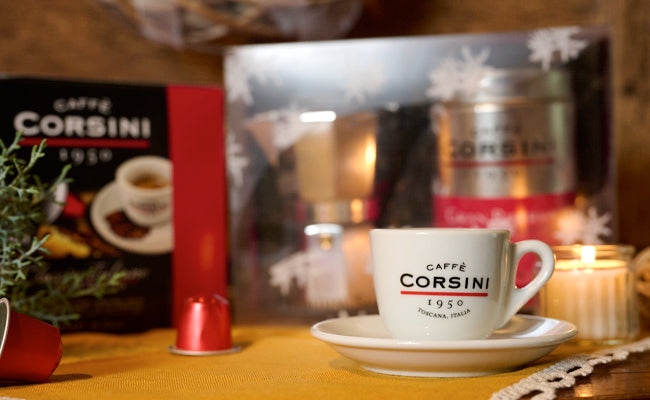
LE ORIGINI DEL GUSTO
AFRICA
KENYA
Located at about 2000 meters, on terraces that draw the slopes of the mountains, shaded by
banana trees, the coffee plantations in Kenya are a spectacular feature of the landscape. The best
qualities of Arabica, after harvest, are processed in wet, hence the adjective "washed".
FLAVOURS: Citrus-cane sugar

ETHIOPIA NATURAL COFFEE
Harenna Forest, one of the largest in Ethiopia, is located in the mountains of the magnificent Bale National Park. For millennia, every family has been going to the forest, picking cherries, drying them in the sun on suspended beds, roasting them, pounding them in a mortar and offering coffee to guests following an ancestral ceremony, a solemn rite, with a strong symbolism of respect and hospitality. The Harenna Wild Coffee Presidium involves 60 families, promotes the shortening of the supply chain, the protection of quality and the territory and guarantees dignity and fair recognition to the people involved.
FLAVOURS : Blueberry-Aromatic herbs
ETHIOPIA ARABICA AYEHU
Arabica Ayehu Ethiopia coffee grows in the fertile highlands of the Amhara region in northern Ethiopia, between 1,700 and 1,800 meters above sea level. The farms and surrounding areas are home to nearly 100,000 people who live and work on the plantations. It currently has more than 200 hectares of Arabica cultivated, although a plan is underway to increase it to 500 hectares. All four coffee companies practice sustainable agriculture, growing coffee fairly for the environment and its inhabitants.
FLAVOURS : Red fruits and cocoa
MALAWI MAPANGA ESTATE
Mapanga Estate comes from a single plantation located in Malawi, a small state in Southeast Africa. This country has been growing coffee since 1890, but production remains deliberately limited to preserve the extraordinary quality.Worked with great care and meticulousness, it has a rich body and a full and fragrant aroma, slightly fruity, excellent in the mid-morning break or in the afternoon.
FLAVOURS : lemon and molasses

ASIA
INDIA MONSOONED MALABAR
A coffee with a unique flavor, with sweet spicy nuances, particularly suitable after meals. This coffee comes from the state of Kerala, on the south coast of India, and is the best quality of monsoon coffees. It is called this because after harvesting the green beans are exposed to monsoon winds in warehouses that are open for a few weeks during the rainy season. This process reduces acidity and increases sweetness, giving it a straw yellow color.
FLAVOURS : Spices and sandalwood
INDONESIA SUMATRA
This coffee is grown in the Aceh region in the Takengon Plateau of Sumatra in Fairtrade certified plots at a height of between 1,000 and 1,700 meters. The coffee from this plantation is guaranteed by the “Fairtrade” brand, which promotes FAIR and SOLID TRADE by promoting direct commercial relations with small producers in the South of the World, recognizing them equal opportunities for independent development.
FLAVOURS : Spices and Cocoa
HAWAII KONA CORNWELL ESTATE
Kona is a world famous coffee that is grown exclusively on the slopes of two volcanoes on the Big Island. The Cornwell Farm, where this coffee comes from, is located at an altitude of 1,500m, in the middle of the so-called Kona Coffee Belt. Kona Coffee is a unique coffee, for perfect growing conditions and special ways of processing the beans. All of these things contribute to the taste of the final cup of coffee, and give a flavor that can (and must!) Be savored and enjoyed!
FLAVOURS : blackberry, lemon and caramel

PAPUA NUOVA GUINEA KIMEL ESTATE
The Kimel Plantation was founded in 1974 by an Australian, Bobby Gibbs. The estate also provides education for children and medical facilities for the workforce and dependents. Clean running water has been made available to the estate's workers through a community project funded by one of their overseas customers, and its implementation is overseen by the estate's management. The management of the company also implements some ecological policies regarding environmental issues, such as the recycling of pulp that is returned to the fields as organic fertilizer and the recycling of water used during wet processing.
FLAVOURS : Peach-orange-sugar cane-chocolate
CENTRAL AMERICA
EL SALVADOR
Light, fragrant and sweet coffee, ideal for the morning or early afternoon. Salvadoran coffee is typical of Central America, with a light body, aromatic, very fragrant, slightly sweet, very balanced and with low acidity. The best is called "SHG" (Strictly High Grown) and means that it is grown at a height of over 1200 meters. As in Guatemala and Costa Rica, coffee is classified according to the altitude of the plantations: the higher the altitude, the better the quality.
FLAVOURS : Honey and Chocolate
COSTARICA
Full-bodied coffee, well balanced, a pleasure to be enjoyed in moments of relaxation. This coffee has been grown since the late 1700s in the mountains of the district of the same name south of San Josè, at an altitude between 1200 and 1700 meters. The climatic and geographical conditions combined with the richness of the rich and well-drained volcanic soil offer an excellent natural habitat for cultivation.
FLAVOURS: Hazelnut and Orange

GUATEMALA - HUEHUETENANGO HIGHLAND COFFEE
SlowFoodCafè Presidium The territory of Huehuetenango, in the northwestern part of Guatemala, on the border with Mexico, has an altitude ranging from 850 to 3700 meters and offers an extraordinary variety of ecosystems (from humid subtropical woods to pine forests). Located at the foot of the Cuchumatanes, the highest non-volcanic mountain range in Central America, Huehuetenango is one of the most suitable areas in the country for the cultivation of coffee.The characteristics shared by the coffees of this area are a full body and good acidity .
FLAVOURS: Citrus and Chocolate
JAMAICA BLUE MOUNTAIN
Exclusive. The finest quality Arabica in the world Also called the “coffee caviar”, the “Blue Mountain” of Jamaica is one of the most appreciated qualities in the world. It grows in the "blue mountains", the eastern area of the island, caressed by humid and warm breezes, a mountain range whose peaks exceed 2,200 meters above sea level. On the higher slopes of these mountains, well arranged on terraces prepared on fertile soil, irrigated by pure water from the streams and shaded by avocado and banana plants, there are Arabica plants brought from Martinique in the eighteenth century.
FLAVOURS: Vanilla and Hazelnut
SOUTH AMERICA
BRAZIL
Due to the particularly favorable environmental conditions, Brazil is the first world producer of coffee. Of the various qualities of Arabica cultivated there, Santos is certainly the most prized. Coming from the "fazendas" of the state of Minas Gerais, it takes its name from the port of Santos, where the bags of coffee not yet roasted are shipped.
FLAVOURS : Dried fruit and cocoa

COLOMBIA
In the mid-morning or afternoon break, the sweet taste and sweet aroma of this coffee offer stimulating pleasure. In Colombia, on the volcanic slopes of the Andes, the most appreciated and widespread qualities of Arabica "mild" in the world are grown. Within a myriad of small farms spread across the Andean region, the delicate art of coffee cultivation has been handed down from father to son for centuries. Medellin Supremo, so called for the size of its beans, is the most widespread and thanks to its particularly sweet taste, it is defined by Colombian connoisseurs as "suave".
FLAVOURS : Walnut and Caramel


